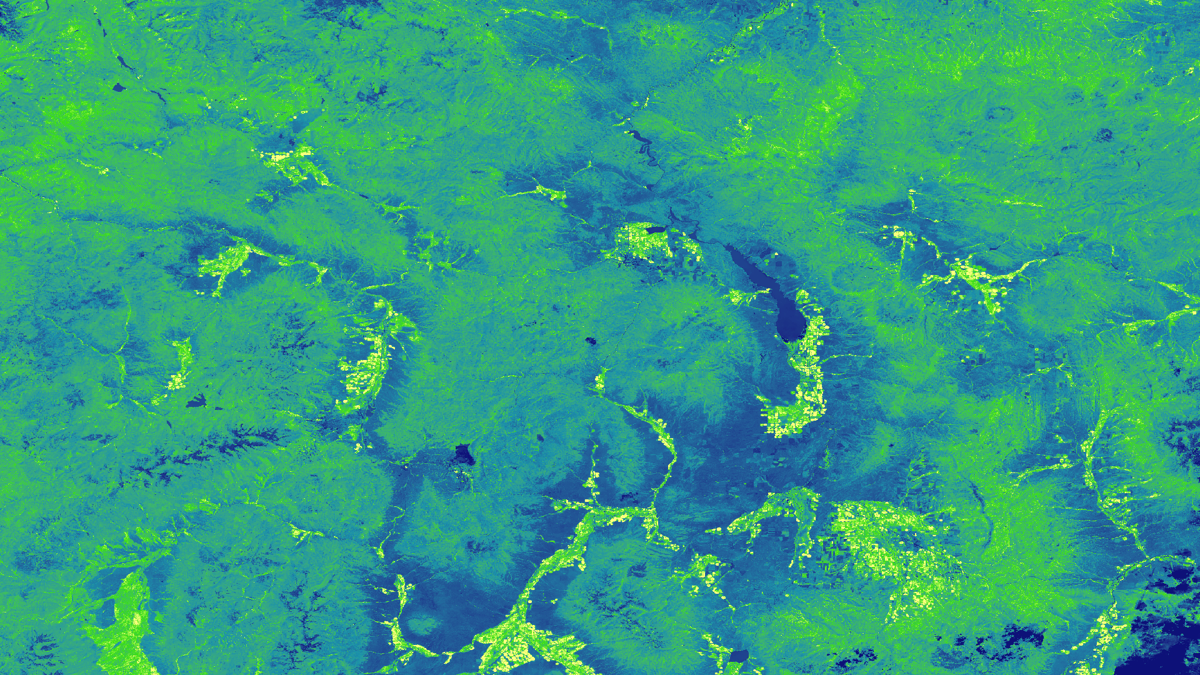Image

NASA

NASA
Tasseled cap greenness transformation derived from Landsat 8 imagery over lodgepole pine forest in the Intermountain West study area
Completed Projects
Siamak Khorram
Keith Weber
Brian Wardlow
Mark Cochrane
Sher Schranz
Zachary Holden
Seth Wenger
Bradley Penta
Linda Vance
Lilian Pintea